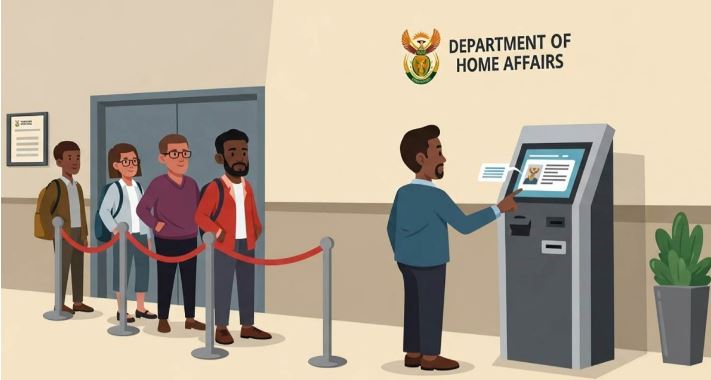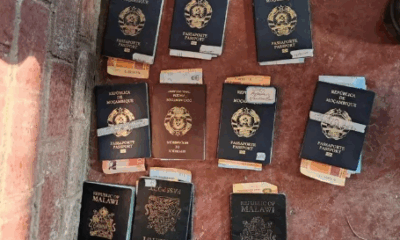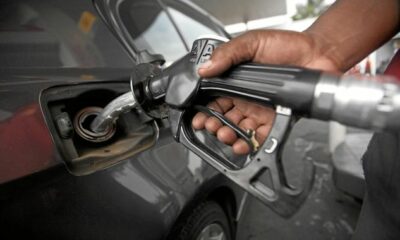News
Home Affairs’ R21 Million “Smart ID ATMs” Shelved as Digital Plans Shift

The Department of Home Affairs’ plan to revolutionize service delivery with high-tech self-service kiosks once dubbed “ATMs for Home Affairs” has ended in an expensive flop. The R21 million project, which promised shorter queues and round-the-clock access to ID and passport services, has now been quietly scrapped.
The Promise: “A New Era” For Home Affairs
Back in 2022, then-deputy minister Njabulo Nzuza pitched the kiosks as a game-changer for citizens tired of long lines and red tape. These virtual interactive machines were meant to let people apply for smart ID cards, passports, and certificates using biometric verification even outside normal office hours.
The kiosks, designed to mirror banking ATMs, were supposed to pop up in shopping centres and community hubs. By 2023, Home Affairs had spoken of a R60 million national rollout across 250 offices, particularly those still using outdated systems.
Nzuza even promised an AI-powered upgrade, hinting that Home Affairs was preparing to leap into the future. But as with many ambitious government tech projects, reality didn’t match the vision.
The Reality: 91 Kiosks, No Results
Fast forward to 2025, and the department revealed to Parliament that it had terminated the contract with supplier Commerce Africa due to underperformance. In total, 91 kiosks had been procured for R20.63 million far short of the 250 promised.
The contract, set to run until November 2025, required full integration with critical systems like the National Population Register and the Automated Biometric Identification System. Yet there’s no evidence that any of this happened.
In fact, no data has been shared about whether the kiosks were ever used or how many ID or passport applications they processed. The only time one of them was ever seen publicly? During a visit by President Cyril Ramaphosa to a Home Affairs office in Mokopane, Limpopo.
Parliament Pushes for Answers
Members of Parliament’s Home Affairs Portfolio Committee have since demanded clarity on whether this was a wasted investment. The department insists the kiosks aren’t being abandoned, only “paused” for a cost and feasibility assessment.
Still, the silence around what R21 million actually achieved is deafening. The project’s quiet collapse reflects a familiar pattern: big promises, big spending, and little accountability.
A Shift to Digital Partnerships
Current minister Leon Schreiber has since pivoted the department’s strategy. Instead of betting on kiosks, Home Affairs is partnering with major South African banks including Absa, FNB, Capitec, Nedbank, Discovery Bank, and TymeBank to handle smart ID and passport applications directly at bank branches.
It’s a move that could bring services closer to citizens without relying on fragile government tech infrastructure. The banks are footing the bill, covering IT equipment and staff training themselves.
The kiosks, meanwhile, might survive only as a stopgap in rural or non-modernised offices, though even that remains uncertain.
Public Reaction: Frustration and Fatigue
Online, South Africans have reacted with a mix of disbelief and weary resignation. “Twenty-one million for fancy ATMs that don’t work classic Home Affairs,” one X user quipped, echoing a wave of frustration over government inefficiency. Others joked that the kiosks probably “needed load shedding schedules” to function.
Still, there’s hope that the department’s bank partnerships could mark a real turning point for public service delivery if they’re executed properly.
The Bigger Picture: Lessons in Digital Transformation
The failed kiosk experiment offers a sobering lesson about how not to digitize government services. It highlights the gap between bold technological promises and real-world execution, especially in departments where infrastructure, maintenance, and accountability remain ongoing challenges.
If Home Affairs can deliver on its new banking partnerships and broader digital strategy, this R21 million misstep might yet serve as a stepping stone rather than a symbol of waste. But for now, the country is left with a handful of idle kiosks reminders of an expensive idea that never quite came to life.
{Source:My Broadband}
Follow Joburg ETC on Facebook, Twitter , TikTok and Instagram
For more News in Johannesburg, visit joburgetc.com


























